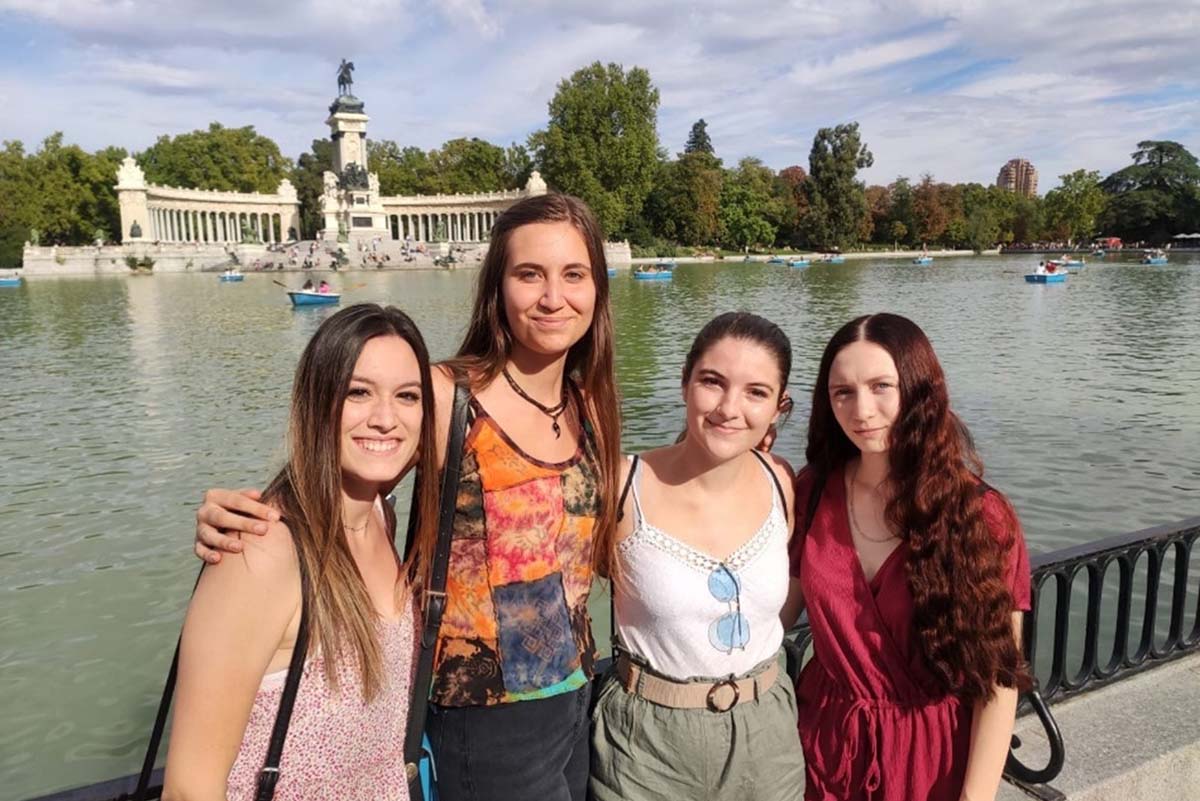
Study in the country of Don Quixote at the Nebrija University, Spain
28 February 2022
Plotnikova Alisa, the student of the UMTE and the participant of the academic mobility program 2021/2022 academic year, told about the sunny Spain, difficulties and joys of the exchange student, unforgettable experience and ways of adaptation in an other countries.
Nebrijia University is a young university which got recognition on the international scale, took high positions in the rating of European universities and achieved success in the sphere of education.
More than 5,000 students study at the university, the number of international students, arriving withing the framework of the Erasmus program and bilateral agreements, increase every year. The university conducts educational programs in social sciences ( economics, international relations, tourism, business administration, jurisprudence, psychology, communications ( marketing, PR, journalism) and Spanish language.
We asked about the studying abroad:
Please, describe your studying process
All the professors communicate with students unmarked; they keep an open mind when communicating and are always ready to explain the topic again if needed. University provides all the information online so even if the student didn`t manage to write everything down, it is always possible to download the presentation and study it again. Almost all the courses contain group works for public speaking practice, projects with other students for the mutual work. Before the exam professors told what should be expected on the exam and specified the information to revise.
To my mind, the only difficulty was the Spanish accent that some teachers had. It made it harder to understand them properly sometimes.
What can you tell about Madrid?
There are a loads of various kind of events in the city. You can always see different shows and parades.
Spanish people love holidays! And many indigenous people could not explain the origin of some holidays, and that`s not a surprising thing considering the amount of holidays. For example, October 12 is Hispanidad when the parade takes place and the Spanish – speaking citizens demonstrate their national costumes and songs.
Madrid is the city of free fashion. Everyone wears whatever they want and their looks are trendy!
Worldwide brands like Zara, Pull Bear, Stradivarius were established in Spain so it is fair to state that fashion starts here. The goods of these stores first begin to be sold in Spain, and then it reaches other countries.
Meat products differ and it is definitely of high quality. The main products that you should definitely try are jamon and fuet.
Christmas fairs are held at Christmas time and unique chocolate which can only be purchased during the Christmas period, is sold in stores.
Alisa, which difficulties have you faced while studying abroad?
The greatest problem was a culture shock. Even if you consider the country as nice, there are a plenty of peculiarities, you can miss your friends and family for sure.
The problem I faced was the inability to cook some dishes, just because there were not Russian ingredients in stores, for instance, Olivier salad can not be cooked with Spanish sausage. Russian store turned out to be a “salvation” in this situation, as you could buy dumplings, buckwheat, semolina and all kinds of Russian sweets there and share it with your foreign friends, finding out their opinion.
What advice would you give for those who intends to study in one of the partner universities?
I would recommend finding a mate to share a flat. Students come there from all around the world, and you will never know whom you will meet and make the friends with. I had 6 neighbors: 2 Spanish girls, 2 Italian girls, Peruvian and Russian. Of course, they were able to understand each other considering that the languages they spoke are different, but it was not a problem to make friends and spend time together. With the friends of different nations I managed to know about their culture features, the ways they spend holidays (for example, Spanish people eat 12 grapes!), the rules for card games, some facts about dinner (Spanish people like having dinner at restaurants pretty late, at 7-9 pm).
Such a familiar thing as Russian cuisine helped me a little to overcome the culture shock for sure. Also, my Russian friend speaking Spanish helped me a lot. I didn't have time to miss Russia as I always had a friend nearby who helped with the translation and didn't let me get bored as well. So the best way to have unforgettable times abroad is to make friends.